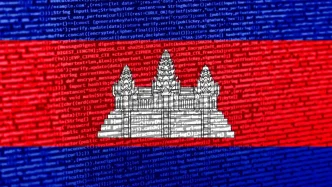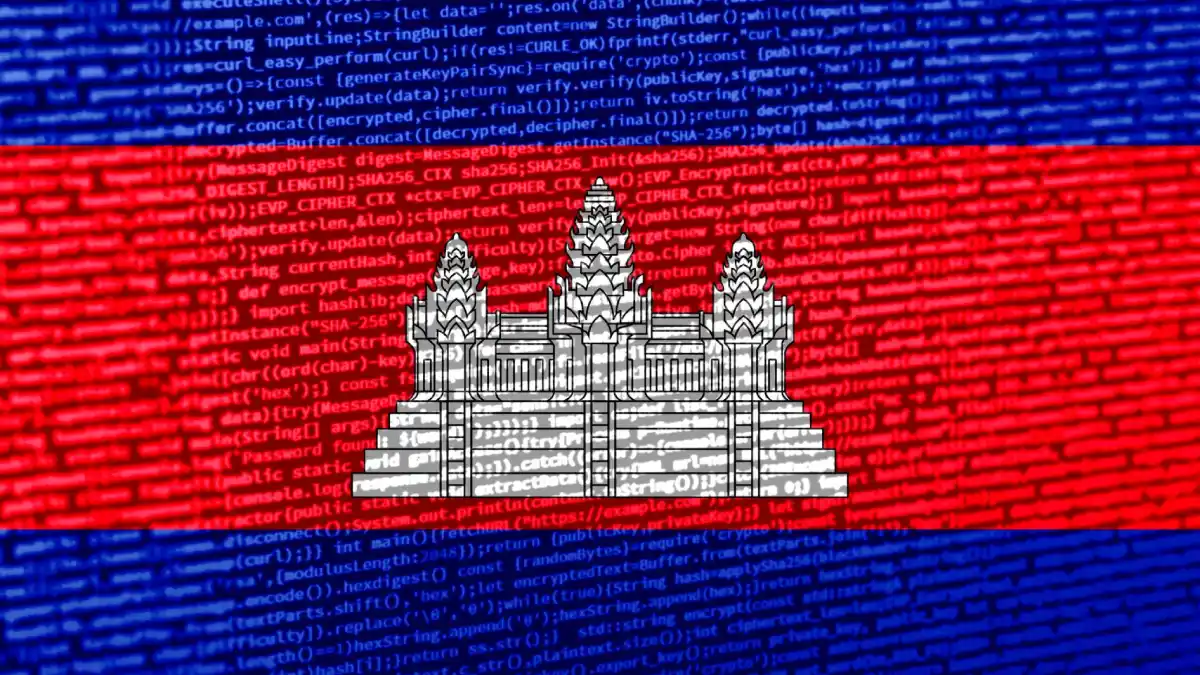In a determined bid to safeguard tourists and maintain public order, Preah Sihanouk provincial authorities in Cambodia have intensified their efforts to combat online fraud, a growing menace in the coastal region. Last week, over 40 Vietnamese nationals were detained in a sweeping operation targeting cybercrime, underscoring the challenges of policing technology-based offenses in a popular tourist destination.
Operation Targets Online Scam Networks
On July 10 and 11, 2025, the Preah Sihanouk Provincial Immigration Police, in collaboration with the Provincial Administrative Command, conducted raids on two rental properties in Group 18, Village 5, Sangkat 4. The inspections uncovered 43 foreign nationals, all of Vietnamese descent, allegedly engaged in sophisticated online scam operations. Authorities reported that these individuals utilized platforms such as Telegram and Facebook, alongside fraudulent websites like billmmo.net, to perpetrate their schemes.
The operation yielded significant evidence, with officers seizing 13 passports, 16 computers, 16 mobile phones, and 2 motorcycles. Among the detained, two Vietnamese nationals—a man and a woman—were identified as the leaders of the criminal network. Both have been sent to court for legal proceedings, while the remaining individuals, found to be residing in Cambodia illegally, are being processed in coordination with the General Department of Immigration. The targeted rental properties have been temporarily shuttered as investigations continue.
The Preah Sihanouk Provincial Police issued a statement emphasizing their commitment to curbing such crimes: “The Preah Sihanouk Provincial Police continues to strive to suppress technology-based fraud to ensure security and public order for citizens and domestic and international tourists.”
A Growing Threat in a Tourist Haven
Preah Sihanouk, often referred to as Sihanoukville, has long been a magnet for tourists drawn to its beaches and vibrant nightlife. However, in recent years, the province has also gained notoriety as a hub for cybercrime, particularly scams targeting unsuspecting individuals online. The influx of foreign nationals, some operating under the guise of legitimate businesses, has complicated efforts to maintain security in the region.
Online fraud schemes, often orchestrated through social media and fake websites, have become a pervasive issue across Southeast Asia. In Cambodia, these operations frequently exploit the country’s relatively lax regulatory environment and proximity to larger regional markets. The detained Vietnamese nationals are part of a broader trend of cross-border criminal networks taking advantage of such vulnerabilities. According to local reports, many of these scams involve phishing attempts, fake investment opportunities, and identity theft, often targeting victims far beyond Cambodia’s borders.
Legal and Regional Implications
The detention of over 40 individuals in this operation highlights the complexities of addressing cybercrime in a region where legal frameworks and enforcement capacities vary widely. Cambodia’s efforts to crack down on such activities are part of a broader push to improve its image as a safe destination for international visitors. However, the involvement of foreign nationals raises questions about jurisdiction and the mechanisms for repatriation or prosecution.
The two ringleaders now face legal proceedings in Cambodian courts, where penalties for cybercrime can be severe under the country’s laws. Meanwhile, the remaining individuals, deemed to be in the country illegally, await decisions from immigration authorities. This aspect of the case underscores a recurring challenge in Southeast Asia: the intersection of migration and crime. Many individuals involved in such schemes are believed to have entered Cambodia on tourist visas or through informal channels, exploiting gaps in border control.
Regionally, this incident also points to the need for greater cooperation among ASEAN member states to combat transnational cybercrime. Vietnam, as the country of origin for the detained individuals, may face diplomatic or consular responsibilities in this case. While no official statement from Vietnamese authorities has been verified at the time of reporting, past incidents suggest that such cases often prompt discussions on bilateral agreements to address illegal migration and criminal activities.
Cambodia’s Cyber Security Capability
In 2023, very few people claimed to had actually seen Cambodia’s then draft cybersecurity law. Since that time, much of the discussion around Cambodia’s cybersecurity law has focused on its human rights implications, rather than on its impacts on business.
According to advocates and critics, the Cambodia’s cybersecurity law allows the government to intervene in the event that a business or individual is demonstrably incapable of responding to a cyber-security incident. According to multiple sources—including the government’s own statements—in such cases, the Cambodian government would have the right to seize hardware, take over computers, and essentially lock the business out of all of its digitally based operations.
Challenges in Policing Technology-Based Fraud
The rise of technology-based fraud presents unique challenges for law enforcement, not only in Cambodia but across the globe. Unlike traditional crimes, cyber offenses often leave little physical evidence, relying instead on digital footprints that can be easily erased or obscured. The tools seized in the Preah Sihanouk operation—computers and mobile phones—will likely be critical in piecing together the scope of the scam network, but analyzing such evidence requires specialized skills and resources that are not always readily available.
Moreover, the transient nature of these criminal groups adds another layer of difficulty. Rental properties, like those targeted in this raid, are often used as temporary bases, allowing perpetrators to relocate quickly if they sense scrutiny. This mobility, combined with the anonymity afforded by online platforms, makes it challenging for authorities to stay ahead of such networks.
In response, Cambodian officials have ramped up training for police forces and invested in partnerships with international agencies to bolster their capacity to tackle cybercrime. Yet, as this recent operation demonstrates, the scale of the problem continues to test the limits of local enforcement. The Preah Sihanouk Provincial Police’s public commitment to suppressing fraud is a step in the right direction, but sustained efforts and cross-border collaboration will be essential to dismantle these networks effectively.
Impact on Local Communities and Tourism
For the residents of Preah Sihanouk and the thousands of tourists who visit each year, the presence of cybercrime networks is a troubling undercurrent to the province’s appeal. While the direct victims of online scams are often located elsewhere, the association of Sihanoukville with criminal activity risks tarnishing its reputation as a carefree coastal getaway. Local businesses, many of which rely on tourism for their livelihood, are particularly vulnerable to any downturn in visitor numbers prompted by safety concerns.
At the same time, the heavy-handed nature of police operations—while necessary—can create tensions within communities. The temporary closure of rental properties, for instance, may impact landlords and other residents who are uninvolved in criminal activities. Balancing the need for security with the rights and livelihoods of locals remains a delicate task for authorities.
Looking Ahead: A Call for Vigilance
As Cambodia continues to grapple with the dual challenges of fostering tourism and combating crime, the recent crackdown in Preah Sihanouk serves as a stark reminder of the evolving nature of illicit activities in the digital age. The detention of 43 Vietnamese nationals is a significant achievement for local police, but it is unlikely to mark the end of online fraud in the region. With technology advancing at a rapid pace, both criminals and law enforcement must adapt to new methods and threats.
The outcome of the legal proceedings against the two alleged ringleaders will be closely watched, as will the broader response from immigration authorities regarding the remaining detainees. For now, the Preah Sihanouk Provincial Police’s efforts signal a resolute stance against cybercrime, but the road ahead remains fraught with obstacles. How Cambodia and its neighbors address these challenges could shape the region’s security landscape for years to come.















